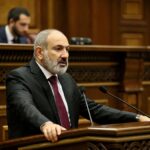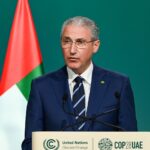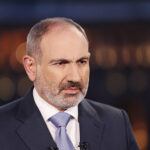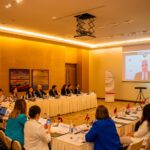Amazing, isn’t it? The absolute unanimity of the two poles of world politics in the perennial Armenian issue paralyzes an analytical mind. The immediate consonance of thoughts and soulful harmony between Moscow and Washington, entangled in a deadly battle on the shores of the Sea of Azov, only prompts one to rethink the new geopolitics philosophically, Tyutchev-style. You cannot grasp Washington and Moscow with your mind, you can only believe in them!
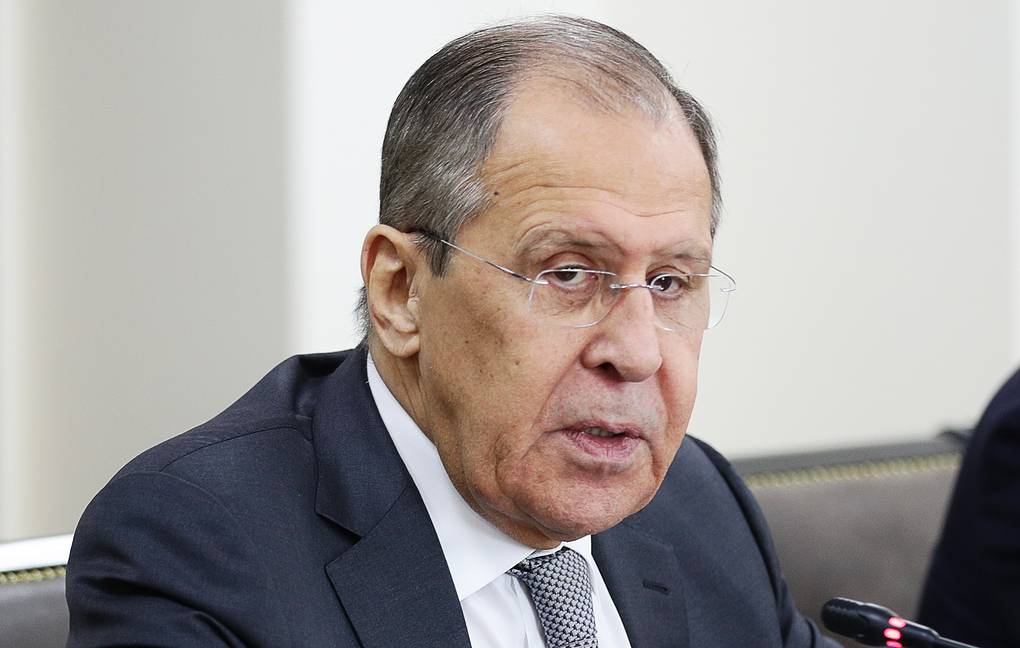
No sooner had Sergey Lavrov, the master of Russian diplomacy, called into question the prospect of cooperation with Washington, this evil spawn of imperialism, than an honorable statement followed from the US Embassy in Yerevan: the US is considering cooperation with Moscow within the framework of the OSCE Minsk Group. And this gallantry, this gracious statement comes from the country that in a matter of days turned Russia into the world’s biggest pariah. The country that put the leading regional power on a par with the buffoonish Jong-un.
The US has severed relations with Russia in all areas, even in the export of urological pads for women. The only exception is the OSCE Minsk Group, designed to secure the right to self-determination for the handful of Armenians in upper Karabakh, or an autonomy, in the best-case scenario for Azerbaijan. For the sake of this holy cause, Washington’s priests and diplomats are willing to forgive Lavrov and Shoigu not only for Bucha, but for the chemical attack on Mariupol as well.
In our troubled times, amid the climax of the fierce power struggle in Paris between Putin’s minion Marine Le Pen and Macron, an outsider in European politics and the chief negotiator in the Kremlin, as the French secret services loudly announce the disclosed covert subversive operation of the Russian secret services on the Champs Élysées, a stately French Foreign Ministry spokesman pops up in the office of Armenian Foreign Minister Ararat Mirzoyan with a diabolical grin on his face. Lermontov’s lines come to mind: “We could hear the Frenchman’s jubilation until dawn”. Diplomat Brice Roquefeuil came to the Armenian minister with a devilish proposal to revive the notorious Minsk Group.

A curious situation we have here. Russia, having recognized the inviolability of Azerbaijan’s borders, rejects the idea of reincarnating the remains of the Minsk Group. But the United States and France, the ideological masterminds of the fight against separatism in Donbass, are pushing Armenia to activate separatist aspirations in Karabakh in every possible way. How else can the idea of resuming the activities of the Minsk Group be interpreted? With the end of the second Karabakh war, Azerbaijan has implemented all the “Madrid principles of the Karabakh settlement” set by the Minsk Group. The territorial integrity of the country has been restored, a peacekeeping contingent of troops has been brought in, the European Union has achieved direct bilateral dialogue between Baku and Yerevan, the elaboration of a final peace agreement and delimitation of borders has started… So what will the Minsk Group be doing? And why should Paris interfere in the successful peace process initiated by Brussels?
Does Paris really believe that Ilham Aliyev will allow the deformation of the “Brussels format” or agree to the involvement of Paris as the concertmaster in the mediation mission? Does Paris cherish this dream after moving the Elysée Palace to Yerevan during the second Karabakh war and threatening Azerbaijan with Mistral strikes? Paris along with the amorphous Macron made their choice during the war and throughout the post-conflict situation, turning Armenia into an area of their vital interests. France is no longer in a position to assume the role of an arbitrator, as it has completely aligned its interests with the values of Armenian expansionism. If Washington and Moscow, proceeding from their global international prestige, are able to compete for influence in the South Caucasus region, the influence of France, who finds itself on the sidelines of world politics, is limited to the walls of the offices on Baghramian Street. French diplomats will not go any further. Bridges are burned, roads are closed.

Macron has lost. Not only in his domestic politics, but also in Karabakh. And now the French are trying their best to undermine the successful Brussels process, which opened new prospects for the establishment of a fundamentally new security system in the region. That is why Macron suddenly showed up in Brussels at the first meeting between Pashinyan and Aliyev and EC President Charles Michel. The French president tried to squeeze himself into the European format, jump on the departing train, take laurels from Brussels and leave Michel in the shadow. But Macron lacks not only charisma but also influence, especially on the winner, Azerbaijan. With its ugly biased pro-Armenian position, France has lost the remnants of influence and trust in Baku, apparently for good. And there is nothing left for Paris to do but join the efforts to bring the Minsk Group back to life. To sit next to Putin. And, if possible, to push to the side Washington, who is willing to compromise with Russia for the sake of the Armenian issue. Not in Donbass, but in Karabakh.
However, the Ukrainian phenomenon should have been a lesson to the powers that be, eager to control the will and destiny of nations. After the outbreak of the war, Washington and Paris carelessly buried Ukraine, as did Moscow, who anticipated celebratory victory salutes and a military parade on Khreshchatyk. One nation’s yearning for freedom messed up the plans of the world capitals. But it seems that Washington and Paris do not learn from their mistakes. Nor do they learn from Moscow’s mistakes in Ukraine. The times when the powers that be imposed their will and decisions on peoples ready for a selfless war are long gone, left far behind somewhere in the twentieth century. The main thing is for the world capitals to stop playing with fire in the South Caucasus as well. No need to look for a chair next to Putin and Lavrov. And it would be best to steer clear of the ashes of the Minsk Group…
Elnur Eminoglu
Translated from Haqqin.Az

